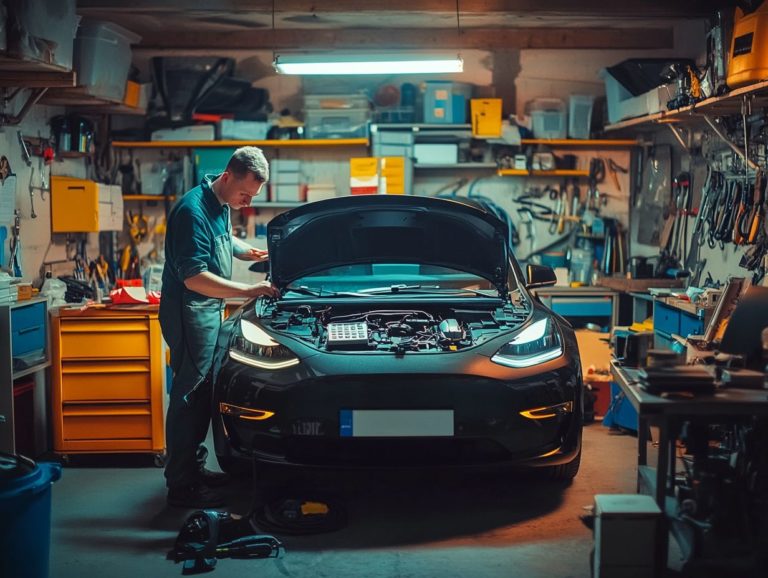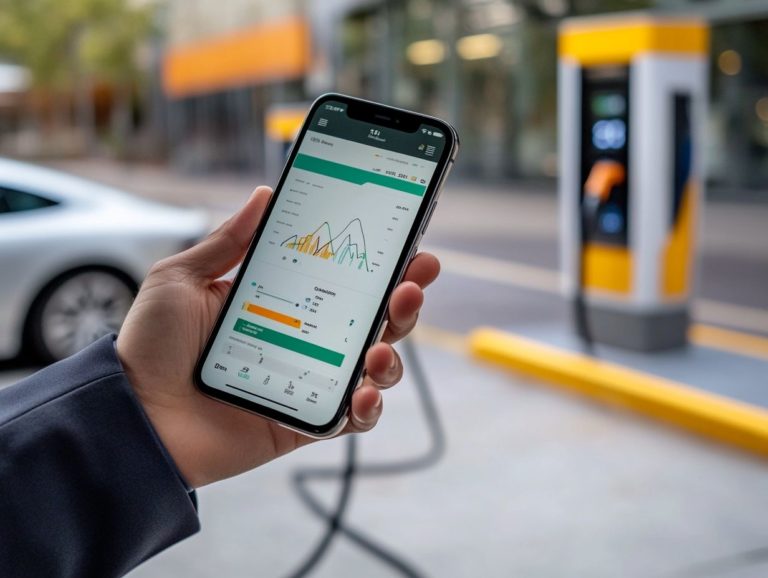New vs Used EV: Which is Right for You?
As electric vehicles (EVs) surge in popularity, you find yourself at a crucial crossroads: should you invest in a brand-new model or opt for a pre-owned gem?
This article delves into the intricacies of EVs, unpacking their mechanics and myriad advantages. Discover the thrilling advantages of choosing a new EV!
Key factors will be laid out to guide you in making the most informed choice tailored to your lifestyle and budget. Uncover the ideal option for your eco-friendly journey!
Contents
Key Takeaways:
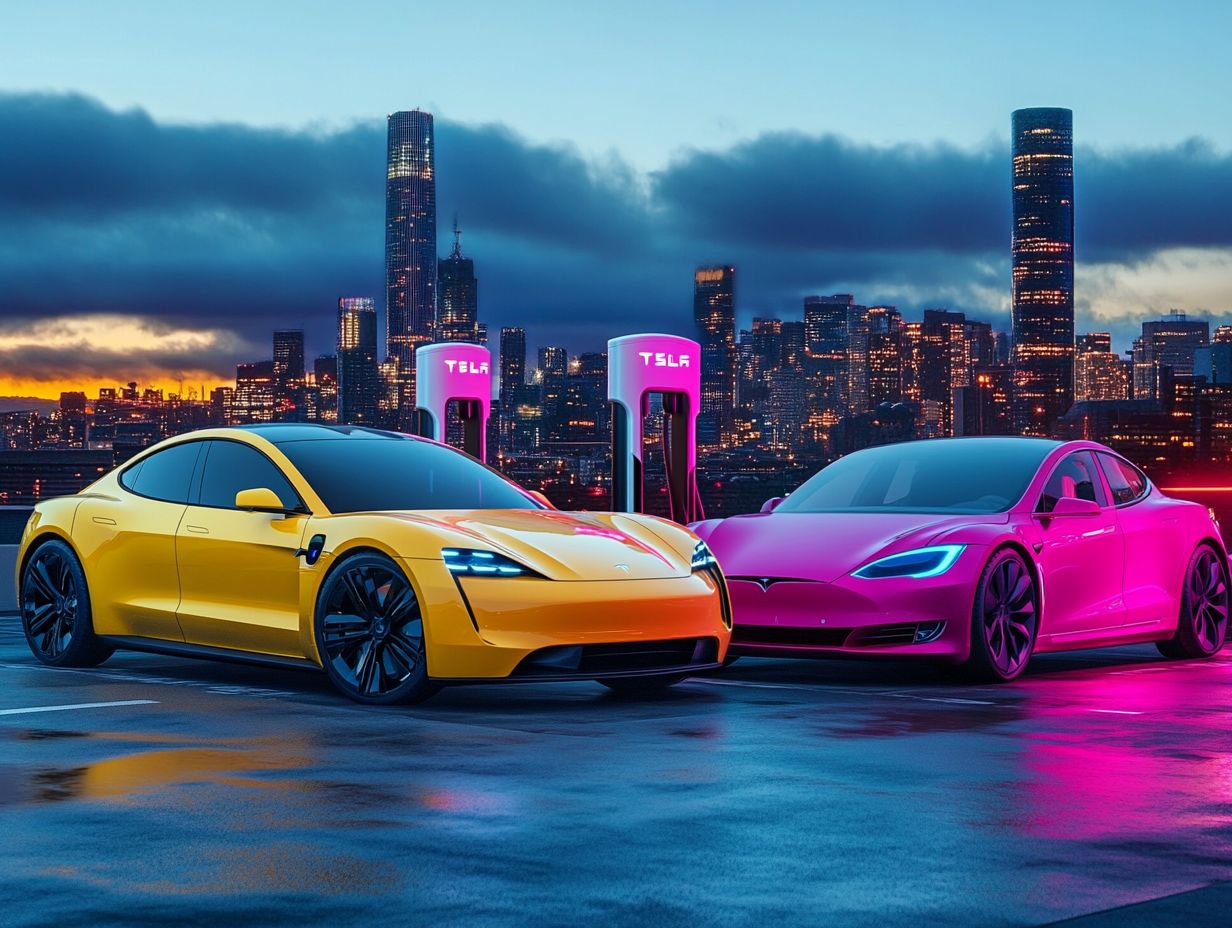
- Consider your budget and financing options when deciding between a new or used EV.
- A new EV offers warranty, maintenance, and the latest technology and features, while a used EV may have a lower cost of ownership and reduced depreciation.
- Assess your personal preferences and needs, as well as the availability of charging stations, when choosing between a new or used EV.
Understanding Electric Vehicles (EVs)
Understanding Electric Vehicles (EVs) is essential for making informed financial decisions in today s rapidly evolving automotive landscape. These advanced technologies bring a host of benefits, including lower operating costs and enhanced battery health.
As the electric vehicle market continues to grow, you need to familiarize yourself with the intricacies of vehicle range and charging stations. This knowledge will equip you to navigate the complexities of the used vehicle market with confidence.
Consider important factors such as average EV prices and depreciation concerns that encourage the adoption of used electric cars.
What are EVs and How Do They Work?
Electric vehicles (EVs) operate on electric motors and rechargeable batteries, primarily leveraging a common type of battery used in electric cars that holds a lot of energy to achieve remarkable performance.
You can categorize these vehicles into two main types: hybrids, which elegantly combine an internal combustion engine with an electric motor, and fully electric cars that depend entirely on electricity for propulsion.
Each type showcases unique performance features; fully electric cars often provide quicker acceleration and a quieter ride, while hybrids enjoy the advantage of extended range thanks to their gasoline engine.
Battery health is crucial, as it profoundly impacts your vehicle’s range and efficiency. Regular maintenance and monitoring are essential to ensure optimal driving performance at every turn.
Benefits of Buying a New EV
Investing in a new electric vehicle (EV) presents you with a wealth of benefits. You ll enjoy cutting-edge technology and comprehensive warranty options.
Moreover, you have the opportunity to capitalize on various EV incentives and government grants that aim to make ownership not only more attainable but also more economical.
Warranty and Maintenance
Warranty specifics for new EVs encompass critical components, including battery replacement and maintenance issues, ensuring you feel secure in your investment.
These warranties cover essential parts such as the electric drivetrain and charging components, providing comprehensive protection against potential defects.
Many manufacturers offer separate warranties specifically for the battery, which can last up to 8 years or 100,000 miles.
This addresses your concerns about capacity degradation over time. Common maintenance issues for electric vehicles may include software updates and tire wear.
So, it s vital for you to fully understand the warranty terms. Familiarity with these details enables you to make informed decisions regarding repairs and services, maximizing your vehicle’s lifespan and performance.
Act now to find the perfect electric vehicle that fits your needs!
Latest Technology and Features
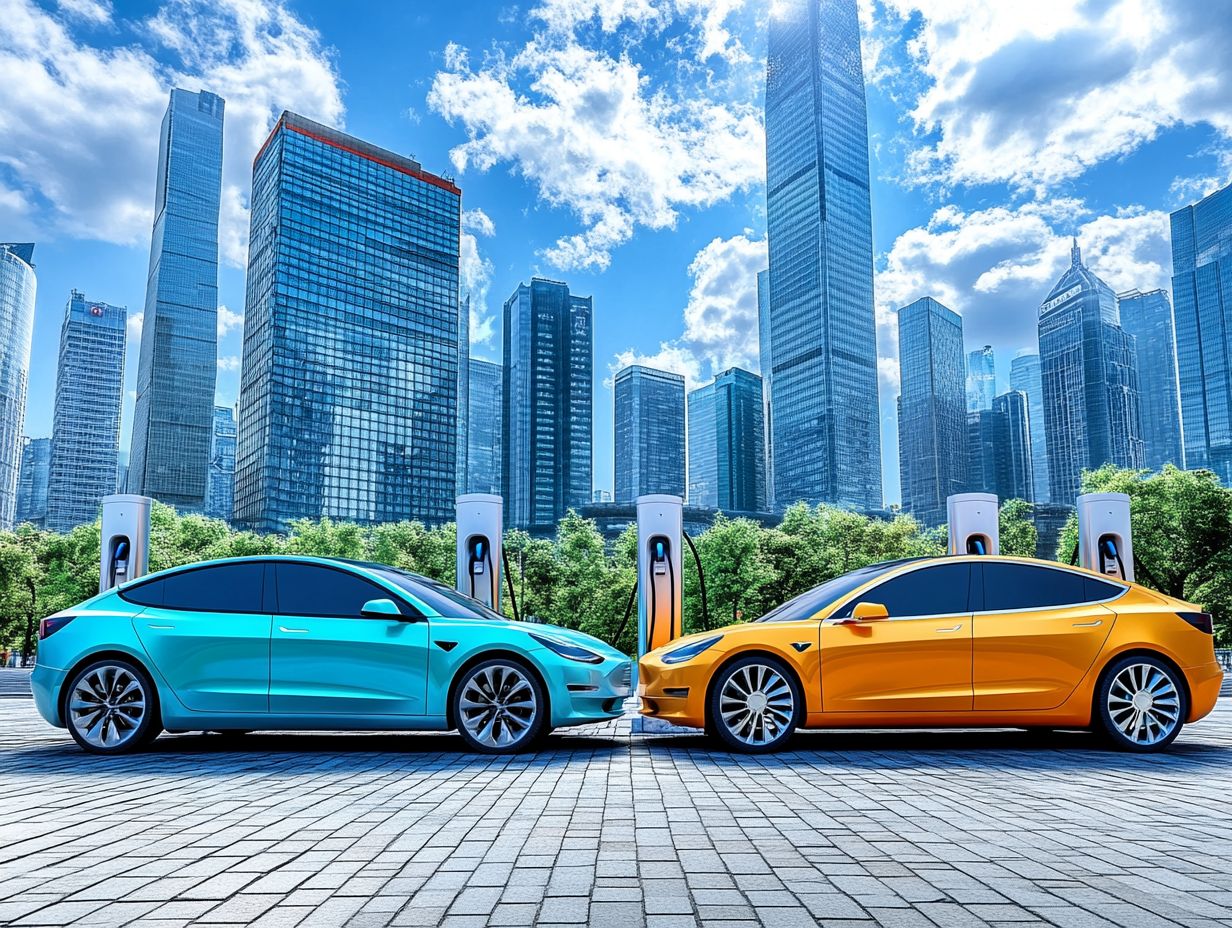
Electric vehicles (EVs) offer exciting advancements that boost your driving experience. From impressive performance to innovative charging systems, these features make driving more enjoyable.
These cutting-edge innovations include regenerative braking systems that capture energy and convert it into usable power, significantly enhancing your vehicle’s energy efficiency. Smart upgrades, like connectivity features and over-the-air software updates, allow seamless connection with your devices, ensuring you enjoy the latest advancements without a trip to the dealership.
These enhancements not only extend your driving range but also elevate the overall allure of electric vehicles, making them an enticing choice for anyone looking to embrace more sustainable transportation solutions.
Advantages of Purchasing a Used EV
Buying a used EV comes with great benefits! You ll enjoy lower ownership costs, reduced depreciation, and easier access to the growing used vehicle market.
Lower Cost of Ownership
One compelling reason to consider a used EV is the potential for lower operating costs. This can lead to significant savings over time compared to traditional vehicles.
Switching to an electric vehicle can save you money on fuel since charging an EV is generally cheaper than filling up with gasoline. These vehicles also have fewer maintenance issues, thanks to having fewer moving parts, which means less frequent repairs and longer intervals between services. If you can take advantage of home charging, especially during lower nighttime electricity rates, your charging costs will be further reduced.
When you combine these factors, you create a financially appealing scenario for used EV owners, transforming what might have seemed like a daunting investment into a savvy financial decision that continues to pay off.
Reduced Depreciation
Reduced depreciation serves as a significant advantage for you as a used EV buyer. Electric vehicles generally experience less overall value loss compared to new petrol cars.
This trend arises largely from the rapid depreciation new vehicles, including fossil fuel-powered models, typically face within the first few years after purchase. Market saturation and technological advancements swiftly make older models less appealing. Conversely, used EVs tend to hold their value better because of rising demand driven by increasing environmental awareness and notable improvements in battery technology. Key factors such as mileage, brand reputation, and warranty coverage greatly influence resale value.
Thus, choosing a used EV can often lead to a more favorable financial outcome for you, allowing you to enjoy modern technology without enduring the steep initial depreciation that comes with new conventional vehicles.
Factors to Consider When Choosing Between New and Used EVs
Choosing between a new and used EV? Think about your budget, financing options, and your personal preferences! Check the availability of charging stations for a hassle-free experience.
Making an informed decision will elevate your journey into the world of electric driving.
BUDGET AND FINANCING OPTIONS
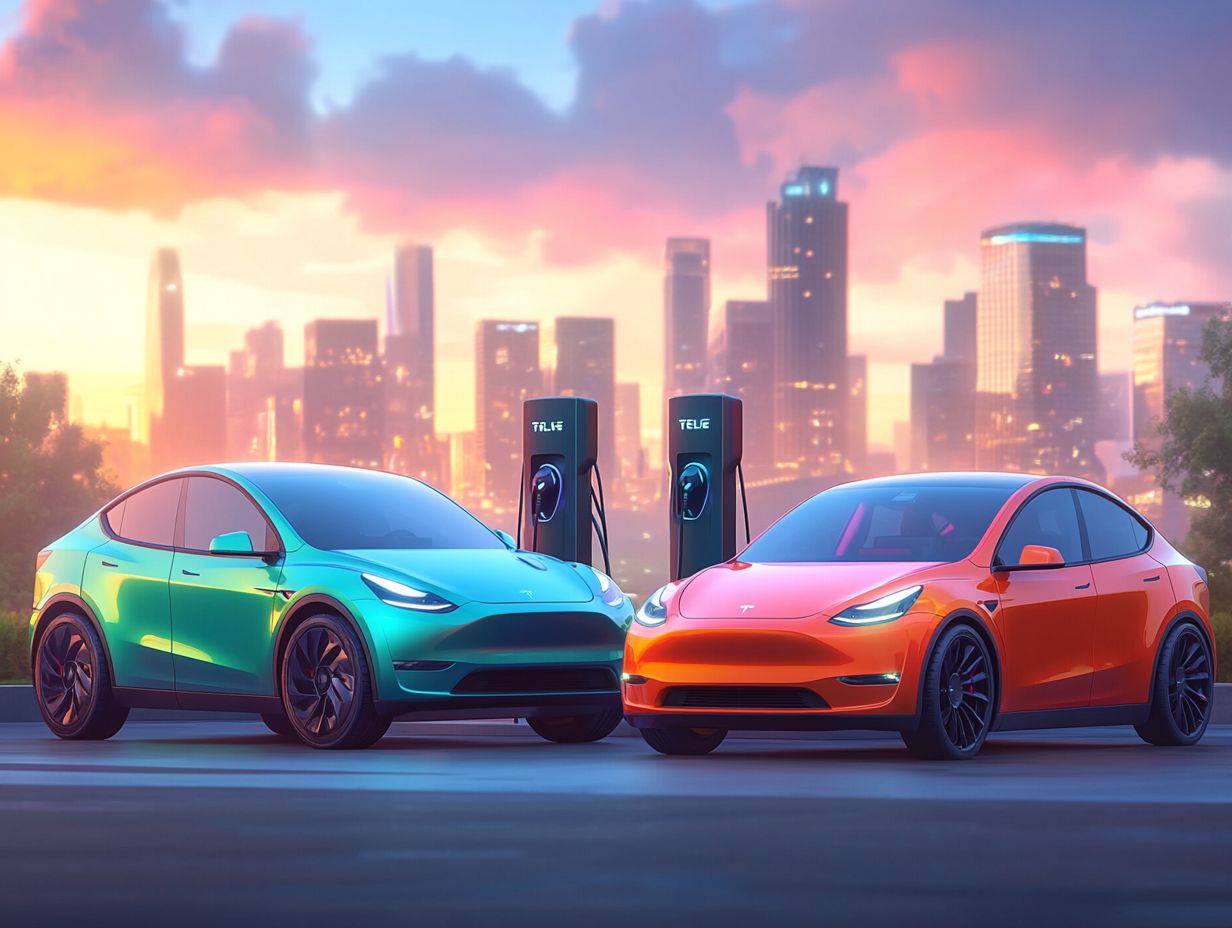
Budget and financing options are pivotal in your financial journey when considering the purchase of either a new or used EV. The array of purchase options and income requirements can greatly influence your final decision.
For many buyers, exploring loan and leasing options is vital for charting the best course forward. Securing a loan offers the enticing prospect of ownership, enabling you to build equity over time. Leasing presents a flexible alternative with lower monthly payments and the allure of driving a new model every few years.
Don’t overlook the significant impact of the federal EV tax credit, which can make the initial investment much more manageable. Your choice between a loan or lease will likely hinge on your unique financial circumstances and preferences. Each option carries its own set of benefits and challenges that can shape your long-term expenses, so consider what aligns best with your lifestyle.
AVAILABILITY OF CHARGING INFRASTRUCTURE
The availability of charging infrastructure is a crucial factor for you as a potential electric vehicle (EV) buyer, whether you re eyeing a new model or a used one. It impacts how much you pay for charging and how easy it is to own your EV.
As you consider your options, you ll likely assess the current landscape of public charging stations, which can vary dramatically depending on where you are. In some regions, you might find a growing number of fast chargers at strategic locations, making those longer trips more manageable. Meanwhile, other areas still struggle with limited access, which can be a real headache.
Home charging systems are another important consideration for you, as they allow for convenient overnight charging. However, the installation costs can feel intimidating. All these factors cost, accessibility, and convenience play a significant role in shaping your decision and ultimately influencing your satisfaction with EV ownership.
FREQUENTLY ASKED QUESTIONS
Here are some common questions people have about EVs:
IS BUYING A NEW OR USED EV BETTER FOR THE ENVIRONMENT?
Both options have their benefits. Purchasing a new EV can help reduce emissions by supporting the development of more efficient and environmentally friendly vehicles. However, buying a used EV also contributes to reducing emissions by giving a second life to a vehicle that might have otherwise been scrapped.
WHICH IS MORE COST-EFFECTIVE: A NEW OR USED EV?
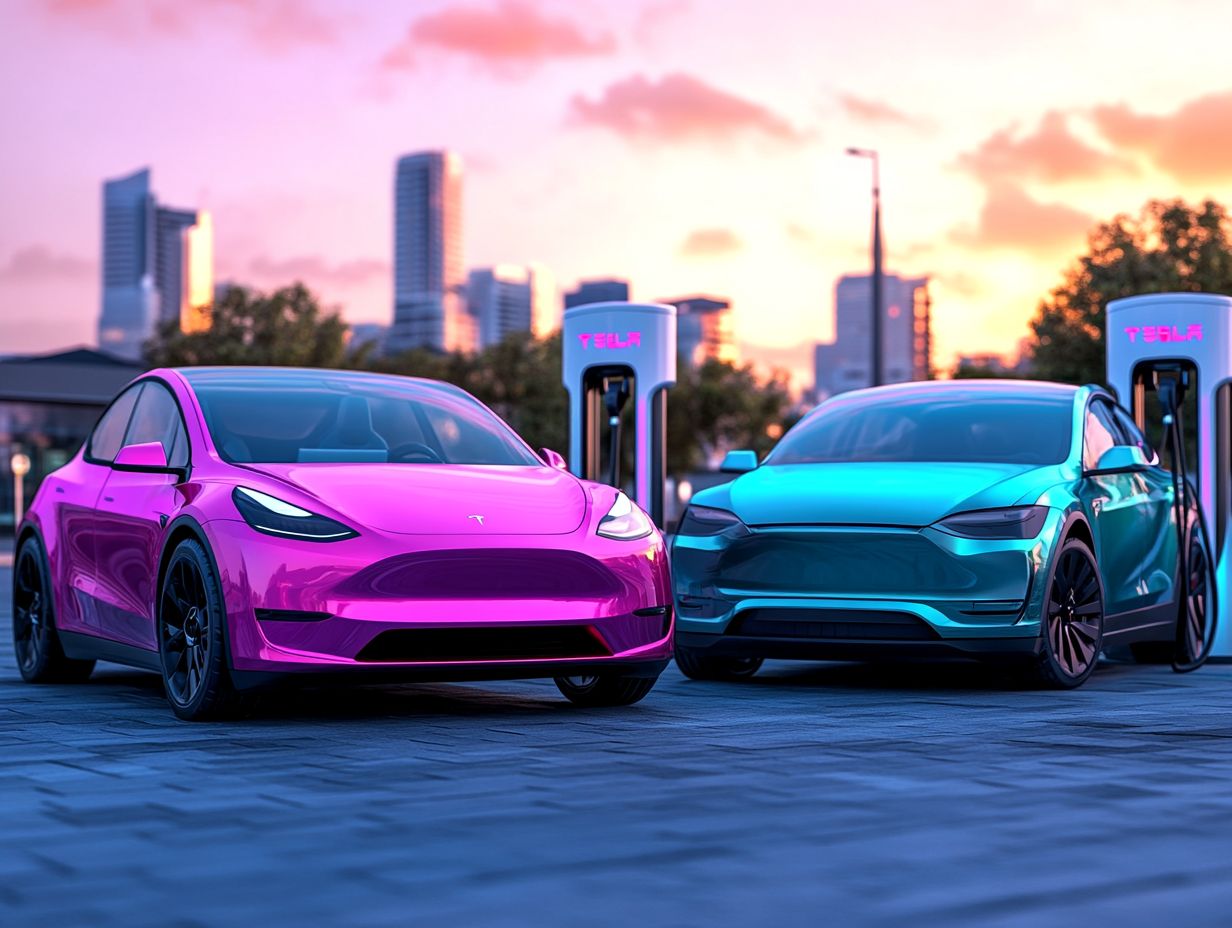
Generally, a used EV will have a lower upfront cost compared to a new one. However, it s important to consider the potential savings on maintenance and fuel costs with a new EV. Weigh your options and determine which will be more cost-effective in the long run.
PERSONAL PREFERENCES AND NEEDS
Understanding your personal preferences and needs is vital when considering an electric vehicle. Factors such as your desired vehicle range, reliance on charging networks, and warranty specifics can significantly influence your choice between new and used EVs.
As you evaluate an electric vehicle, take a moment to assess how your daily routines like commuting distances and the availability of home charging align with the vehicle’s specifications.
For instance, if you live in the city, you might find yourself gravitating toward compact models that offer sufficient range for short trips. On the other hand, if you’re in the suburbs, you may need a vehicle that can handle longer journeys without frequent stops.
Don t underestimate the importance of local charging infrastructure; it can help alleviate concerns about range anxiety, the fear of running out of battery power without a charging station nearby. Warranty specifics are important, as comprehensive coverage can provide peace of mind, especially as you navigate new technology.
Ultimately, aligning these factors with your personal lifestyle choices will lead to a more satisfying and enjoyable EV experience.
What are the potential risks of buying a used EV?
One risk is the uncertainty about the vehicle’s history. You must research thoroughly and have it inspected by a trusted mechanic before you buy.
Used EVs often have a shorter battery life than new models. This could impact your long-term costs.
Do used EVs come with a warranty?
It varies by vehicle and seller. Some used EVs may still have the original manufacturer’s warranty; others may not.
Always ask about the warranty before you buy. Consider getting an extended warranty for added protection.
Are there any tax incentives for buying a new or used EV?
Yes, both new and used EVs can qualify for federal and state tax incentives. The amount can depend on the vehicle’s age and condition.
Research the incentives available in your area. Understanding these can help you make a smarter decision.
Can I lease a used EV?
Yes, some dealerships and leasing companies allow you to lease a used EV. This option can be more affordable than a large upfront purchase.
Just like buying, make sure to research the lease terms carefully. You want a deal that works for you!


